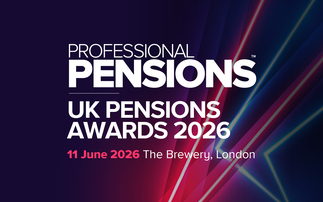
Buzz respondents have their say on what pension policies a new government should prioritise. Source: Studiostockart via iStock
An incoming government should focus on extending auto-enrolment (AE) and increasing contributions, the industry says.
Last week, Professional Pensions conducted a special Pensions Buzz poll as part of the PP Pensions Commission, which we have launched in a bid to bring together industry opinions and ideas on the future of pensions ahead of the general election on 4 July – asking what areas of pensions an incoming government should prioritise.
Many participants said an incoming government should focus on measures to help improve adequacy – including expanding AE, increasing AE contributions and introducing measures to help encourage people to save more for retirement.
As one contributor noted, measures to extend AE and raise contributions "have been put off way too long".
Respondents also said an incoming government should focus on "making the dashboards a reality", with others saying it should also be putting more emphasis on multi-employer and decumulation only collective defined contribution.
Other popular thoughts included doing nothing and "leaving pensions well alone" – with some also calling for a government with a "long-term outlook" on pensions. There was also a call for simplification and a halt to "government tinkering".
Buzz respondents also felt there was need to look at how public sector pension schemes were funded as well as taking a look at state pension issues – with one suggesting the next government should "move away from the political uncertainty of the triple lock toward a stable uprating system based on maintaining a defined percentage of average earnings".
There were also calls for better post-retirement solutions, even more focus on defined benefit (DB) surplus; and the introduction of ‘pot for life'.
Amending current policy
PP also asked respondents if there were any areas of current pension policy they thought should be amended or removed altogether.
Several thought that a simplified general code would be a good place to start. Others commented on the complexity of the annual allowance as well as other pension tax rules – as one noted "there are multiple different methods of tax relief, with at least four different systems in use which is very confusing to individuals".
Others felt Taskforce on Climate-related Financial Disclosures reporting should be substantially simplified – down to just "four pages", according to one – with another saying disclosure regulations more generally needed to be cut back.
The Pensions Regulator's statement of strategy came under fire, as did the "additional red tape" in the new DB funding code.
There was a call for a review of the "ever-increasing role of the regulator" and one respondent said the dashboards project should be scrapped – noting it is "a white elephant which will fail to deliver clarity".
Simple, low-cost options
Finally, we asked if there were any simple, low-cost policies the next government could implement as soon as it assumes office in a bid to improve pensions policy.
Once again, respondents said extending AE, increasing AE contributions and improving financial education and engagement would be top of their list.
Several others suggested either appointing a pensions commission; or to limit the number of pension changes made during the next government.
As one said: "We need a policy of introducing no new pensions policy for the next five years." Another had a similar take: "Make one set of changes to come into effect from 6 April 2025 and then make no more until after the next election. Give us stability!"
Others focused on the state pension, saying the new government should "commit to setting the state pension at a defined percentage of average earnings", while a number said disclosure, investment and funding regulations should be simplified or cut altogether.








